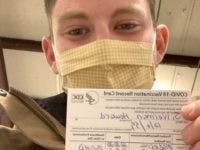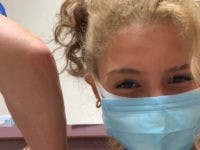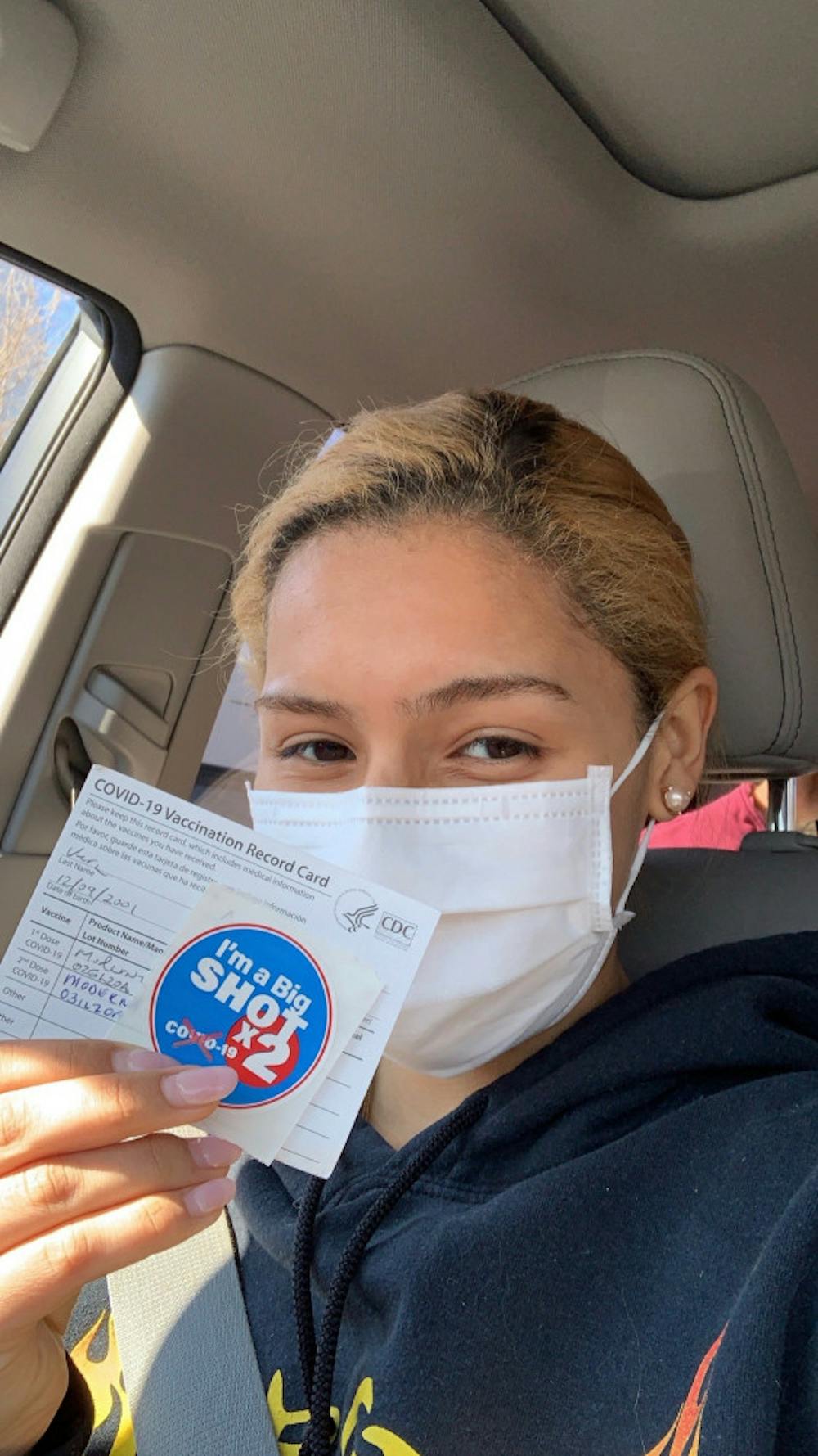As states across the country expand COVID-19 vaccine eligibility, some University students are qualifying for the shot in their home states, prompting them to travel miles outside of the Ocean State and back to get their first and second doses.
In Rhode Island, residents 65 and older, teachers and childcare providers have most recently become eligible for the vaccine. Most Brown students do not yet qualify in the Ocean State.
But because each state has its own vaccine program, many students who work frontline jobs or have underlying medical conditions have already become eligible to receive the vaccine elsewhere. Some have travelled — by train, plane or car — round trip in under 24 hours to get their shots.
Marc Fernandez ’24 got his second dose of the vaccine Jan. 28, the day after the first phase of the University’s Quiet Period ended. Fernandez lives on Long Island, N.Y. and works as an EMT, which made him eligible for the vaccine in the state. “Considering I was gone for less than 24 hours, (Brown) approved it,” Fernandez said.
Students are permitted to leave Rhode Island to receive the vaccine if they return within the day, according to an email reviewed by The Herald that Fernandez received from a Student Support dean. All students must request approval from Student Support Services, and may be required to complete a seven-day quarantine "based on location of travel, method of travel, time away from campus and other factors," University Spokesperson Brian Clark wrote in an email to The Herald.
[caption id="" align="aligncenter" width="329"]

Silverman felt “completely fine” immediately following his second dose, but the next morning he woke up sweating and shivering. “I felt horrible,” he said. “The next day I was a lot better, and two days later I was back to normal.”
Amanda Vera ’23 was able to get the vaccine in her home state of New Jersey because she had volunteered in the past at the hospital where her mom works. Once her mother learned that active and inactive hospital volunteers were eligible for the vaccine, Vera “set up an appointment and made it happen.”
[caption id="" align="aligncenter" width="312"]

She also experienced some cold-like symptoms after receiving her second shot but said, “a Tylenol and a couple water bottles later I was fine.”
After being vaccinated, Vera feels she can now “walk around with less anxiety.” She added she felt lucky to be able to get the vaccine at all, as the vaccine rollout nationally has been disorganized.
“Getting vaccinated wasn’t necessarily on my radar at all, because it’s not a widely known thing who is eligible and where you can get it,” Vera said. “I feel like it’s very vague in terms of how things are run.”
The country’s vaccine rollout has been largely decentralized, with each state instituting its own plan for vaccine prioritization. New Jersey is currently vaccinating frontline workers and first responders, those 65 and older, individuals with underlying health conditions, teachers, school staff and childcare workers.
Maryland, Silverman’s home state, is currently in phase 1C, which includes all the same groups as New Jersey’s plan in addition to judiciary staff, government workers and those who work in food service, transportation and in faith communities. New York has made similar groups eligible, with the addition of food delivery workers and hotel staff.
The recent authorization of the Johnson and Johnson vaccine will help to increase supply in the United States, potentially accelerating the nationwide vaccination effort.
The University is not currently distributing vaccines to students or faculty, but “that may change as the vaccine becomes more readily available,” according to the Healthy Brown website. In a town hall Tuesday hosted by the Undergraduate Council of Students, Executive Vice President for Planning and Policy Russell Carey ’91 MA’06 shared that the University may eventually host a vaccine clinic “as the months progress and supply gets a little broader and deeper,” The Herald previously reported.
“Brown as an institution should (take) major steps in order to get the whole student body vaccinated,” Vera said.
She argued that the University has the resources to ensure low-income students — who, she said, might not have the financial resources to travel to get vaccinated — can get the shot. “Having it available through Brown specifically would be the most efficient way to get as many people vaccinated as possible,” Vera said.
As a first-year, Fernandez will be in Providence for classes this summer. He thought the University “absolutely” should try to vaccinate students living on campus for the summer semester, “assuming it’s possible and within reason.” Staff and administration, he said, should be the first ones vaccinated, “considering they are the backbone of everything going on right now.”
Silverman said that he thinks it is crucial for everyone who is eligible to get vaccinated. “College students are the ones who are spreading it most,” he said, “so if we get vaccinated we can hopefully stop (the pandemic) a little quicker.”
Through whatever means available, he said, “just get (the vaccine) as soon as you possibly can.”
Clarification: This article has been updated to reflect comment from University Spokesperson Brian Clark regarding the approval process to leave campus to receive the vaccine, and protocol for returning.

Katy Pickens was the managing editor of newsroom and vice president of The Brown Daily Herald's 133rd Editorial Board. She previously served as a Metro section editor covering College Hill, Fox Point and the Jewelry District, housing & campus footprint and activism, all while maintaining a passion for knitting tiny hats.





